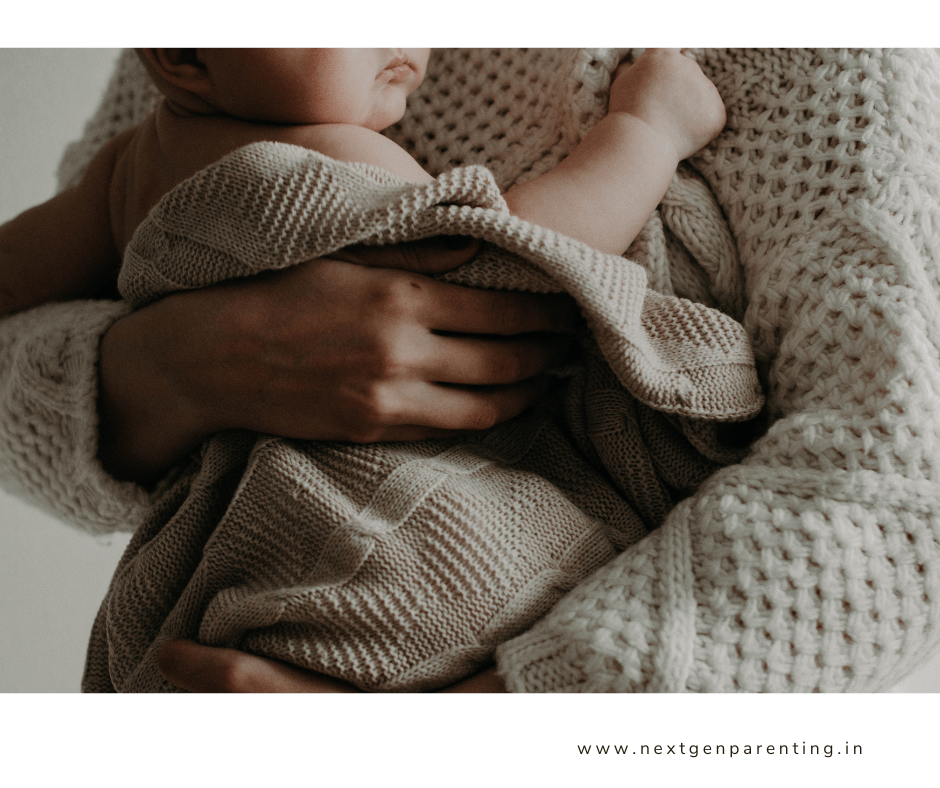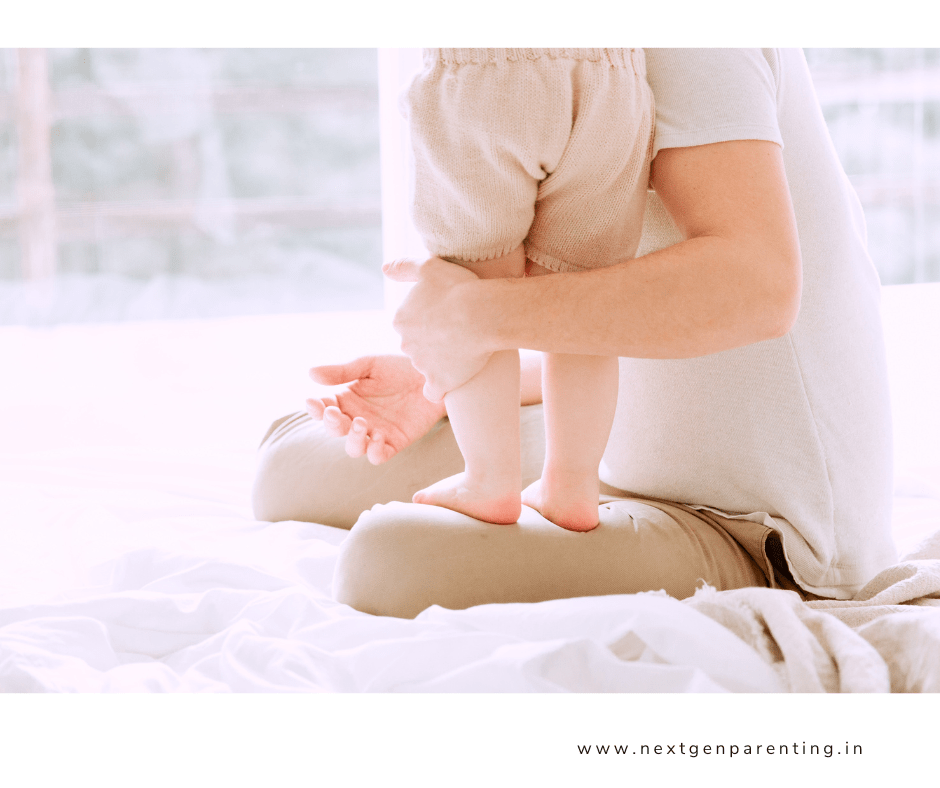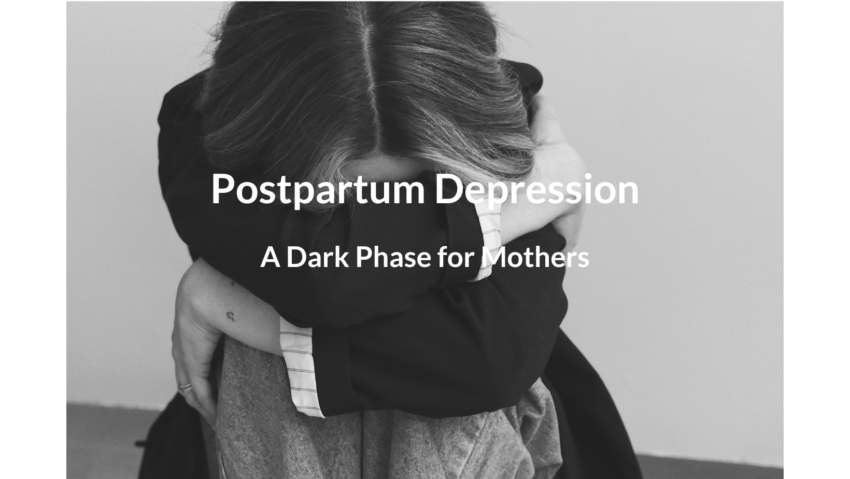In India, before covid attack, very few were talking about mental health. COVID hit and people suffered from depression, anxiety, and stress and started to talk about mental health. Thanks to social media and other media who has started awareness for mental health issues. But there is another mental health problem that is mostly ignored by all, especially in India. The depression that most mothers experience, The postpartum depression.

Its severity may be different from mother to mother but in some amount, every mother has experienced the stress after their delivery.
After the birth of the baby, the mother experiences stress as she is worried about the baby. Suddenly she feels overloaded with responsibility and tension for the performance as a mother.
She started to question herself what if she would not be able to take good care of her child, what if she failed as a mother? These feelings chase her like a dark shadow every time she holds her baby.
I also felt exact emotions after I gave birth to my son. I still remember the sleepless nights and getting emotional every time, crying without a reason and sobbing when feeling alone and confused.
I always question myself why I’m acting like this. Before being a mother, I was a strong, fearless, adventurous, career-oriented girl with a focused mind.
Suddenly feels like that super strong girl is lost from the inside and now I’m a helpless woman with no clue what is going on, what is happening with me.
What is Postpartum Depression?
Feeling restlessness, mood swings, anxiety, sleepless nights, and crying spells, all are the symptoms of baby blues.
It starts on the 2nd or 3rd day after delivery and may last up to 3 to 4 weeks.
Mostly 80 to 85% of mothers have experienced baby blue and it is normal.
If you or your near dear experience baby blue then please help them to recover from it. Take good care of her and understand her.
At this time a mother needs some rest, guidance, and lots of love and support.
Few of them feel long-lasting and severe baby blues which is called postpartum depression. If you find severe baby blues in mommy then consult your doctor immediately.
Symptoms of Baby Blue
- Feeling overwhelmed
- Mood swings
- Anxiety
- Crying without reason
- Appetite problem
- Changed sleeping pattern/trouble sleeping
- Sadness
What is the difference between Baby Blues and POSTPARTUM DIPRESSION?
Generally, baby blues start with the baby’s delivery whereas in many cases postpartum depression starts during the pregnancy and continues after the child’s birth and stays for several months.
In postpartum depression, the symptoms of baby blues become severe and worried and need medical and psychological treatment.
Symptoms of POSTPARTUM DEPRESSION
- A mother with postpartum depression does not feel a bond with the child and may refuse to feed her child or take care of the child. Even she doesn’t feel any emotion for the child. She faces difficulty in making connections with her child.
- Mother also started to keep her distance from family members, friends, and near dear. As she feels lonely and helpless, she hardly asks for help from others.
- Eating disorders are the common symptoms of any depression. Here it is seen that the mother also has an eating disorder. She increased her food intake or refused to eat and, in both ways, she compromised her health.
- After childbirth, it is common to see changes in sleeping patterns as she has to take care of a new baby. but when a mother is facing depression, then she feels too tired and can hardly get up. She may sleep too much or experience a lack of sleep.
- Due to sudden changes in her life, she feels overwhelmed and tired as she is going through many things at the same time. New responsibility of the child, hormonal changes, relationship with a partner, body weight, and many more.
- She loses interest in daily chores and is even not interested in doing her favorite activities that she liked earlier.
- Irritability and anger appear more in her behavior. The overthinking and overwhelmingness do not allow her to think clearly and that’s why she loses control over her emotions.
- Fear of being a bad mother is the most common thought in almost 85% of new moms. When a mother faces depression this thought gets intense and she starts to keep her distance from her child.
- Hopelessness, worthlessness, shame, guilt, restlessness, these all negative emotions block a mother’s mind and somehow, she blames herself for everything.
- All negative emotions and thoughts can affect the ability to think clearly. She cannot concentrate or cannot make decisions mindfully
- According to her depression level and the severity mother has an anxiety or panic attack and can harm herself and her child.
- In extreme conditions of depression, she has continuous thoughts of harming herself and/or her baby. She has suicidal thoughts and is negative about every situation. At this time get the immediate help of a consultant and doctor.

Paternal Depression
After the baby is born parent’s life changes suddenly and dramatically. Both parents, mother, and father face different kinds of tension and both face different situations.
Fathers may also face depression and the reason behind it varies from mother.
For instance, the father has to figure out the new expenses, the future planning for the baby, and relationship issues with his partner. Fathers may also struggle financially which is also a factor of stress for fathers and many more factors can lead a father to paternal depression.
If any of the parents had a history of depression then the chance of paternal depression is higher.
For the New Parents
I know it is hard to adapt to a new lifestyle, a lifestyle that now includes the responsibility of a newborn. But at this moment you (mom and dad) both need support and help. You have your family who definitely help you and support you.
Now it is the time when you need each other’s back. So, try to understand each other, your help and support mean a lot for your life partner.
Conclusion
Hey, parent. Your life may go through a difficult path but one day you will memorise these days and laugh together. Try to be positive, and find support to manage your new routine. One day your child will grow and everything become normal as it is.
If you are going through baby blue or postpartum depression then please visit your family doctor.
Please share your experience of the parenting journey. You can share your thoughts in the comment section. We like to hear your words.
Thank you for reading this article and please share this with other parents who need help.
You might like to read
Why it is Important to ‘Connect before Correct’
Parenting isn’t just about managing behavior or controlling a child. It’s about shaping hearts and minds. One of the most...
Read MoreHow to start tough conversation with a teen
The most difficult task while dealing with a teenager, is "How to start a tough conversation with a teen child?"...
Read MoreWhy It’s Time We Talk Honestly About Parenting
As parents, we carry a silent yet powerful responsibility—to raise children who are emotionally strong, mentally healthy, and kind to...
Read MoreAdolescence: A Netflix Series That Hits Hard
I recently watched Netflix’s latest limited series, Adolescence, and I have to say—it left me speechless. With only four episodes,...
Read MoreHow to Fostering Creativity in Preschool Child
We all are struggling with screen time usage of children and getting disappointed how our children get addicted to the...
Read More7 Gifts for Yourself on Valentine’s Day Mama
Everyone is crazy when Valentine's Day is coming. The excitement and love are at their peak in February month. But...
Read More